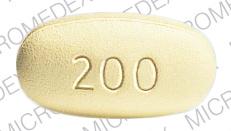Rezulin Disease Interactions
There are 2 disease interactions with Rezulin (troglitazone).
Troglitazone (applies to Rezulin) liver disease
Major Potential Hazard, High plausibility. Applicable conditions: Alcoholism
The initiation of troglitazone therapy is contraindicated in patients who have a history of liver disease or alcohol abuse; exhibit clinical evidence of active liver disease; or demonstrate increased serum transaminase levels (ALT > 1.5 times the upper limit of normal). The use of troglitazone has been associated with significant elevations in serum ALT levels as well as severe idiosyncratic hepatocellular injury, which has generally been reversible but, in a few cases, led to liver transplant or death. Injury has occurred after both short- and long-term treatment. Patients who receive troglitazone therapy should have serum transaminase levels checked at the start of therapy, at least monthly for the first year, and at least quarterly thereafter. If signs or symptoms suggestive of liver injury occur, liver function tests should be performed. Moderate elevations (ALT > 1.5 to 2 times ULN) require immediate re-testing and weekly monitoring until levels return to normal. Troglitazone should be withdrawn if ALT rises above 3 times ULN or jaundice develops.
Thiazolidinediones (applies to Rezulin) macular edema
Moderate Potential Hazard, Moderate plausibility. Applicable conditions: Diabetes Mellitus, Diabetic Macular Edema
New onset or worsening diabetic macular edema with decreased visual acuity have been reported in postmarketing reports in some diabetic patients who were taking thiazolidinedione drugs. Some patients presented with blurred vision or decreased visual acuity, but some patients appear to have been diagnosed on routine ophthalmologic examination. Most patients had peripheral edema at the time macular edema was diagnosed. Some patients had improvement in their macular edema after discontinuation of their thiazolidinedione. Patients with diabetes should have regular eye exams by an ophthalmologist according to current standards of care. Additionally, any diabetic who reports any kind of visual symptom should be promptly referred to an ophthalmologist, regardless of the patient's underlying medications or other physical findings.
Switch to professional interaction data
Rezulin drug interactions
There are 544 drug interactions with Rezulin (troglitazone).
Rezulin alcohol/food interactions
There is 1 alcohol/food interaction with Rezulin (troglitazone).
More about Rezulin (troglitazone)
- Check interactions
- Compare alternatives
- Reviews (1)
- Drug images
- Side effects
- During pregnancy
- Drug class: thiazolidinediones
Related treatment guides
Drug Interaction Classification
| Highly clinically significant. Avoid combinations; the risk of the interaction outweighs the benefit. | |
| Moderately clinically significant. Usually avoid combinations; use it only under special circumstances. | |
| Minimally clinically significant. Minimize risk; assess risk and consider an alternative drug, take steps to circumvent the interaction risk and/or institute a monitoring plan. | |
| No interaction information available. |
See also:
Further information
Always consult your healthcare provider to ensure the information displayed on this page applies to your personal circumstances.


